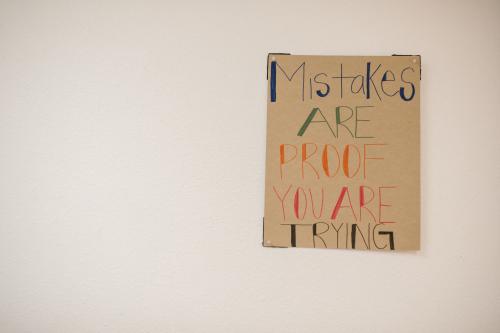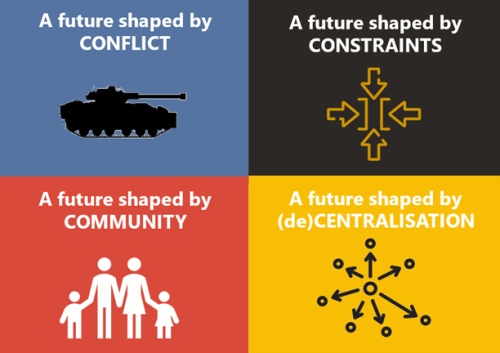All light brings shade. My list of ‘changes that have been all upside and no downside’ is short and debatable. It extends to anaesthetic dentistry, clean air, and clean water.
Maybe there are more.
But rather than trying to add to this list, what I'd like to do is to employ the founding insight: to look for the downsides that come with any innovation, however positive seeming. Plenty of people want others to see the light; I want them to recognise the shade.
I’ll do that here using the example of data to inform decision making.
I've chosen data because, in the eyes of policy at least, it apparently belongs on the same list as clean air. ‘More and better data’ appears in every policy document of note (usually alongside ‘more digital’). It comes with a host of claimed benefits, almost never weighed out against the downsides.
I've also chosen data because I strongly believe in it. I’ll happily clap along to nearly every benefit claimed for using data in decision making. This blog isn’t me setting fire to a strawman; instead it’s simply noting that these benefits come with drawbacks, some of which are subtle.
What might they be?
Data changes knowledge
Viewed up close - and in the flesh - few problems seem simple. Viewed from afar - and mediated by pixels and bar charts - the reverse is true. It’s nearly impossible to perceive complexity, or therefore to see commensurately careful responses. The requirement to quantify phenomena tends towards simplification. The mistake is then to manage the map as though it were the territory.
In a twist of irony, is data making us less empirical? To what extent do we act with the apparent belief that the data are ‘real’? Can we slip into managing data, forgetting that it re-presents reality, but doesn’t substitute for it?
Data centralises power
Abstracting knowledge from a local context can abstract power with it. Minus data, the people with the power are those closest to the action. Because of data, it is now conceivable that ministers might call far away hospitals to ‘draw attention to’ a situation represented to them in the data. Nye Bevan’s dropped bedpan doesn’t reverberate; it downloads for decision makers who want to be ‘data driven’.
Data allows the aggregation of power, fuelled by the illusion of knowledge. Are we building a hall of mirrors? And a political / managerial class that operates largely in a self-referential delusion?
Data narrows the spotlight
The aggregation of power and the illusion of knowledge allows attention to become tightly focused. It need not be this way, but the resulting spotlight is then more likely to swing towards immediate, operational problems – ignoring slower-burning issues. Local Chief Executives are more likely to ‘get a call’ about the single mental health patient who has been in A&E for 12 hours than they are the uncertain and emerging consequences of the mental health crisis among young women.
Data illuminates, but what does it obscure? Do we over-use the narrow-beam spotlight at the expense of the wide-angle lamp?
Data degrades muscle
The Apgar score, given to newborns following a test, helps professionals assess care that a baby might need. The test was created around the intuitions of Dr Virginia Apgar. Because she was attuned she began to (sub-consciously at first) recognise patterns; these patterns could then be made explicit and measured. But the beginning and end of this process was professional intuition.
Does data degrade intuition? As the abstract replaces the concrete, does the muscle of observation atrophy? If so, what happens over time?
Data fuels delusion
In his 1998 book ‘Sources of Power: How People Make Decisions’, Gary Klein describes research looking at firefighters’ decision making. It’s rich, subtle stuff. One conclusion that stands out is how risk changed over their careers. Crudely: firefighters were least dangerous at the start and end of their careers when their sense of limitations was best calibrated. Starting out, they knew they knew little (and so were risk averse); ending up, they knew they knew more (and so reacted with skill).
How well calibrated is our ignorance when we examine data? Can managers professionally weaned mainly on data really know what they don’t know?
Data makes things worse. We should use data
Hopefully it’s obvious I'm not about to suggest that we do without data. (If in doubt, please spend a minute looking round our website!).
There is no ‘either/or’ argument here.
Instead, this is a case for modesty and humility; for recognising that the number on the dashboard is a simplified abstraction of a more complex, and more real, situation; and for acting mindful of the potential downsides set out above.
More fundamentally, this is also a case for realism – rather than optimism - in decision and policy making. We must see the shadows cast by the lights we want to turn on. Anaesthetic dentistry, clean air, and clean water: this is a high bar. It’s far safer to assume that the change you are advocating for won’t make it onto this list.
Time to gaze into the dark.




